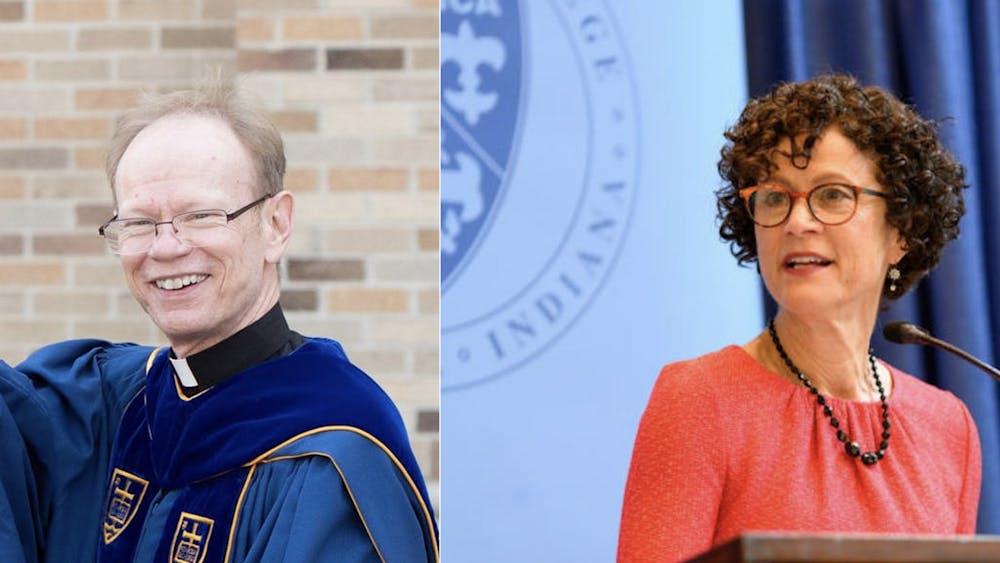Notre Dame’s Office of Academic Standards issued a revised policy on generative artificial intelligence (AI) this Friday to conclude the academic year’s first week of classes.
The policy warned against using AI models in a manner that might interfere with the University’s academic mission and included a clarification on what sort of AI usage might qualify as a violation of the Honor Code. However, Ardea Russo, the office’s director, said she wished to make clear the University was not “anti-technology.”
“There are some really incredible things that ChatGPT, along with all generative AI, can do to enhance student learning, and I think we should embrace that,” Russo said. “I think that it would be a mistake for the University to say that no one can touch it, or that we can’t use it. That’s unrealistic.”
Russo, along with a group of peers that studied the current capacity of generative AI models at length, outlined in their policy how AI might be used to augment rather than detract from students’ learning experiences. The policy offered several examples of ways students could use generative AI as a resource rather than an answer key.
Notably, the policy leaves a significant degree of freedom in determining students’ AI usage in each course to the University’s instructors. John Behrens, director of the College of Arts and Letters’ Office of Digital Strategy and the Idzik Computing and Digital Technologies Program, has worked closely with Russo on the policy and thus confirmed this flexibility in its implementation to be deliberate.
“In that policy, because the contexts are changing, we recommend faculty to engage these new tools and to start to get familiar with them,” Behrens said. “The most important thing to me is that students and faculty start the dialogue about where it fits into the instruction and where it fits into the classroom.”
In addition to serving on the task force, Behrens, a professor of the practice of technology and digital studies, instructs a course on generative AI. Its primary goal is to not only empower the students with these new resources but to teach them how to successfully evaluate the generated content as well.
Still, that doesn’t mean he’s making them completely reliant on these models, Behrens said.
“No matter what happens in the next six months, two years, you’re going to need that larger framework of conceptualization, that larger framework of scientific method, a yet larger framework of understanding how computing works and fits into society,” Behrens said.
In educating students of appropriate ways of using generative AI, he and Russo said they hope to enable students to share in the advancements the technology will inevitably bring.
“I think it’s really important for our students to learn how to use generative AI in whatever their intended career path will be,” Russo said. “We’ve crossed the Rubicon, we are now in a world where everyone will use it as professionals. So, we want our students to be able to use all tools available to them to the fullest, to have their employers know that they didn’t cheat their way through college, that we’ve taught them ethical and responsible use vital to their industry.”
Still, generative AI has posed a major challenge to policymaking during its rapid development.
When faced with the possibility of their policy becoming unenforceable due to these advancements, Russo remained resolute. Taking note of the inconsistencies ChatGPT and other models are often prone to, she said she had full faith in the faculty. It was through their expertise and professionalism, she said, that so many violations of the University’s Honor Code were caught last semester, when generative AI models were just coming into the public sphere.
However, nothing lasts forever, especially when the technology is evolving so rapidly, Behrens said. As such, Russo has confirmed the University to be forming another generative AI task force that she will be on.
“We just have to watch the technology carefully,” Russo said. “Then we have to make sure that students are involved in the conversation regarding how it affects them and their learning and their career paths. We all just have to keep talking about it. And then we’ll revise the policy as necessary.”
Read More
Trending








